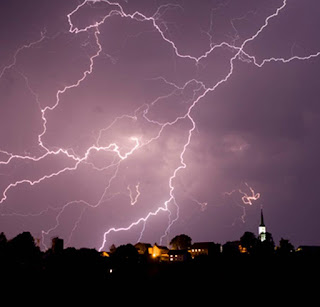Psalms litter the Bible beyond the
book of Psalms, and they even appear outside of the Bible—for instance, in the
Mesopotamian literature. These poetic utterances, usually accompanying high
emotion, teach us much about the worship of God. Habakkuk 3—the Prophet’s
Prayer—or, as others have called it, the Psalm of Habakkuk—is the type of Psalm
that could be set to dramatic music:
“O Lord,
I have heard of your renown,
and I stand in awe, O Lord, of your work.
In our own time revive it;
in our own time make it known;
in wrath may you remember mercy.”
— Habakkuk 3:2 (NRSV)
The psalmist, Habakkuk, begins the
Psalm in reverent fear for his Lord.
He knows something of the infinite power of Yahweh. Habakkuk is desperate to
see God’s power for righteousness prevail in his time.
The Context of the Psalm
Reading Habakkuk we notice a flow.
The first two chapters are about Habakkuk’s lamenting enquiries, which are
followed by the Lord’s answers.
There is a real mode of prayer and intimacy with God as the Minor Prophet
raises his concerns and casts them upon God.
Habakkuk commits to wait patiently
upon Word from the Lord (2:1-2).
It is clear throughout the first
two chapters—where Habakkuk seeks God twice and then God answers twice—that an
understanding of faithfulness is communicated to the Minor Prophet from the Lord.
Chapter 3 comes about because
Habakkuk notes the faithfulness of God and he is inspired to trust the Divine
nature.
A Psalm of God’s Anger
God was coming to judge the people
of Judah
and Habakkuk accepted that, hoping that through such discipline, mercy, too,
would be known.
There is a true essence of fear in
verse 2, profiled above. God’s judging nature has been known through the
timeline of creation. Just like when we quiver at a lightning crack overhead,
or we shudder in amazement at the sweeping tide of a tsunami—the Earth sees and
trembles (Psalm 97)—God can bring us to quaking fear in an instant.
But such is the Minor Prophet’s
faith that he concludes the Psalm as psalmists generally do; there is a fresh
commitment made to trust God—to rejoice in his Saviour.
***
No matter what we fear our best
response is to trust God. Perhaps fear, of all the emotions, brings us closer
to God—because we must rely on our Lord.
As Habakkuk found, the Fear of the Lord
brings us to a faith-response of reliance in trust.
© 2012 S. J. Wickham.











No comments:
Post a Comment